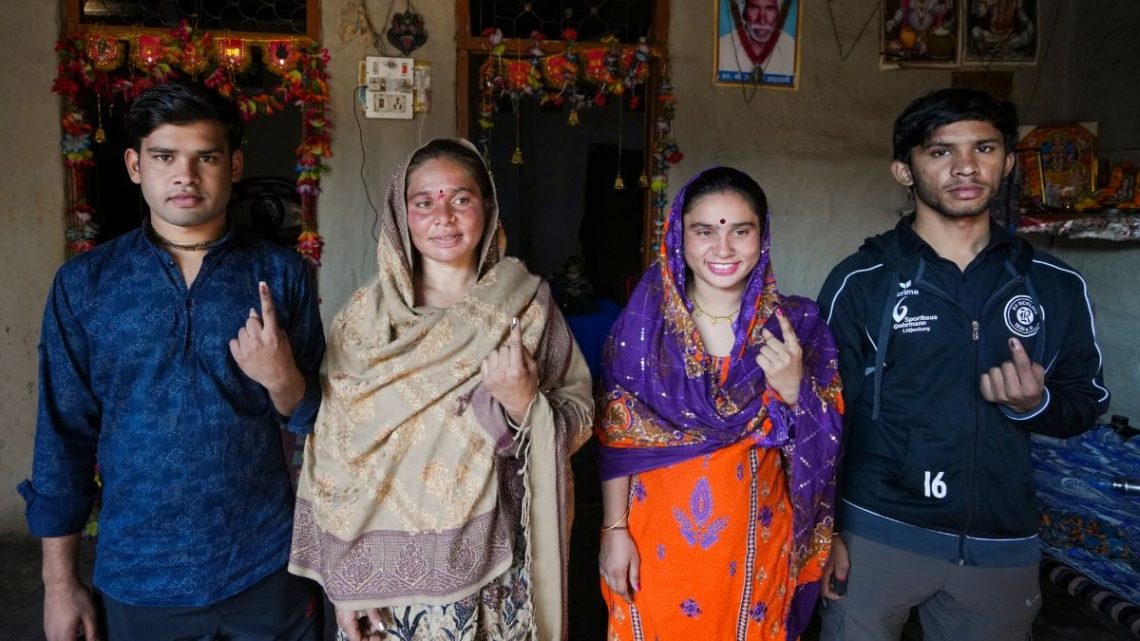The Delhi Assembly elections 2025 were a little extraordinary as the turnout of 60.44 per cent included the votes of Hindu refugees from Pakistan as well, marking it the first time they could exercise their right to franchise despite living in the city for decades.
Thanks to the Citizenship (Amendment) Act, as many as 186 Pakistani Hindu refugees were able to cast their votes for the first time in their lives. The law granted these people Indian citizenship, automatically allowing them to vote.
At least 150 Pakistani Hindu refugees got their fingers inked in Delhi’s Majnu Ka Tila after getting their citizenship under CAA last year.
Casting their votes and choosing the right candidate for a better future brought a sense of fulfilment into these people, who, despite spending a considerable part of their lives in India, did not have the right to vote.
Dharamveer Solanki, the president of the Pakistani Hindu refugee community, told the Times of India, “I have lived here for 17 years but today, for the first time, I truly feel like I am part of Hindustan. Now I have hope that my children will get a better life.”
He added, “Now, we won’t have to constantly change our location. We will finally get permanent homes and a stable means of livelihood.”
On March 11, 2024, the Central Government announced the implementation of the Citizenship Amendment Act (CAA), 2019, enabling undocumented non-Muslim migrants from Pakistan, Bangladesh, and Afghanistan who entered India before December 31, 2014, to apply for Indian citizenship. Around 300 immigrants were granted citizenship under the law.
Scores of Pakistan immigrants crossed the border to enter India during the partition in fear of religious persecution. They flocked to states like Gujarat and Rajasthan while a large community settled in the national capital as well.
In Delhi, Hindu migrants are concentrated in Majnu Ka Tila. Other areas where they found a home include Adarsh Nagar, Rohini and Shahbad Dairy areas.
Link to article –
The journey of Hindu refugees from Pakistan from statelessness to citizen voters
